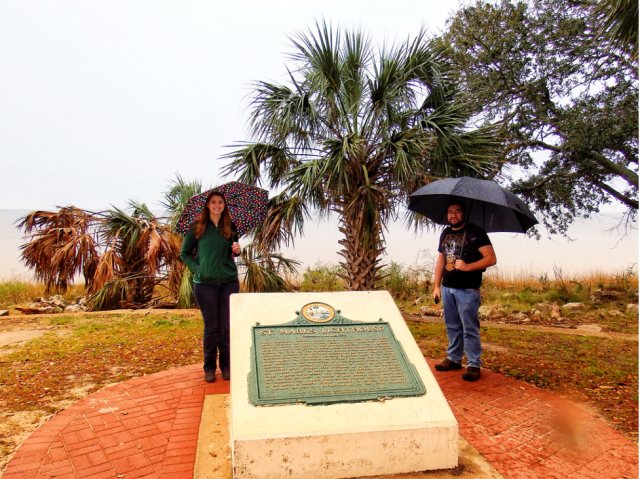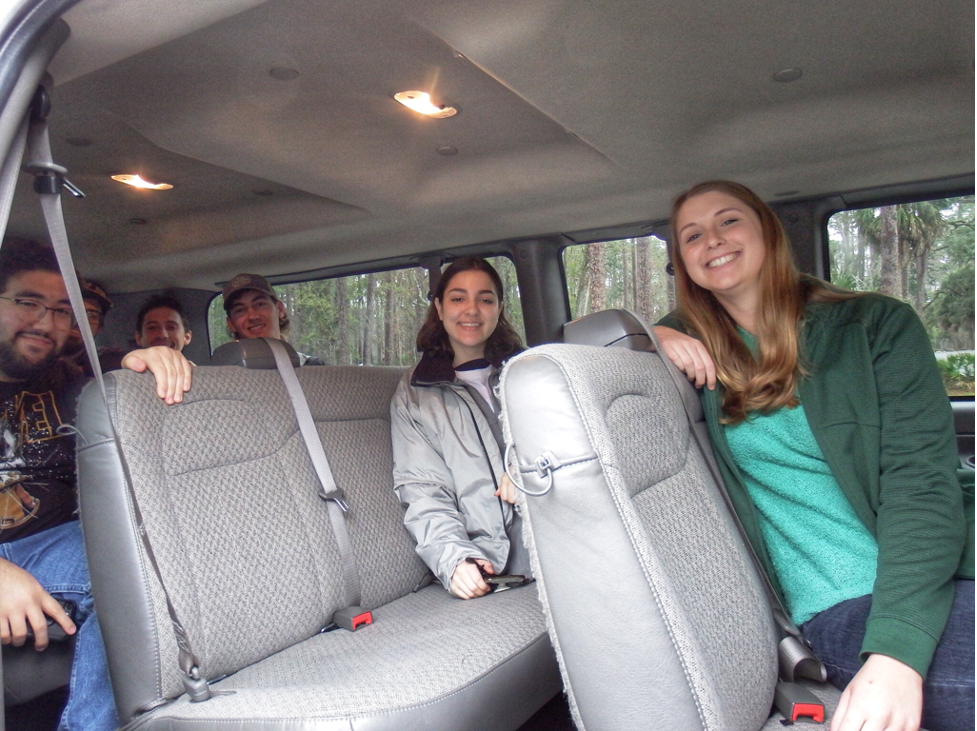Urban Planning Students Contribute to the St. Marks Wildlife Refuge Comprehensive Plan

Students in the Coastal Planning course utilized their classroom knowledge to propose updates to St. Marks visitor services.
Urban Planning students in the Spring 2020 URP 5422 Coastal Planning course collaborated with the St. Marks Wildlife Refuge to propose updates to the visitor services component of the refuge’s comprehensive plan.
Led by Dr. Tisha Holmes, Assistant Professor in the Department of Urban and Regional Planning, students reviewed the existing plan, evaluated strategy implementation, and refined future goals and data sources. The Friends of St. Marks Wildlife Refuge organization provided funding for a group of students to conduct a site visit to the refuge.
In addition to interviews with refuge staff members, students utilized case studies from other conservation plans and online archival research to complete their project. Their final deliverable included a 50-page report and four 10-15 minute presentations. The students provided information on the project’s background, a SWOT assessment of the current comprehensive plan, case study reviews, and recommendations for future visitor service updates.
Supervisory refuge ranger Robin Will was very impressed by the students’ work and felt that she had gained many good suggestions for updating the comprehensive plan.
“I really liked that students compared us to Loxahatchee, Merritt Island, and Savannah, who have similar visitation but a more robust law enforcement staff,” said Will.
Noting the challenges to project completion due to the COVID-19 situation, Friends of St. Marks Wildlife Refuge member Bill Clutter said, “I was very impressed given everything that happened - going from the classroom to distance learning. [The students] really pulled off a good one.”
Dr. Holmes is optimistic that the partnership with the refuge will continue in the future with different classes and other departments. She described the Spring 2020 project as “laying the foundation” for additional deliverables that can be developed over time.
Students in the course enjoyed partnering with a community organization and putting their skills into practice in the real world.
“I’ve been going to St. Marks Wildlife Refuge with my dad for my whole life,” said one participating student. “It’s been cool to see my academic interest in coastal planning come alive through something that’s so meaningful to me.”
Another student described the experience as “unique” and “one of a kind,” noting that it was the first time they’d had the ability to apply lecture knowledge into a full-fledged professional project.
“It’s one thing to learn from a lecture, but it’s another thing to get hands-on experience with the guidance of a professor to complete a realistic, useful project,” said the student. “It’s like an internship where you’re doing work with a professional in a field of study, but there is someone there to guide you if you’re unsure of how to proceed or need to ask questions. The final product you produce really makes you feel accomplished, and overall the experience helped the knowledge stick and prepared me for working in my field of study.”

For more information about the project, visit the Florida State University News website at news.fsu.edu.
To learn more about the St. Marks Wildlife Refuge, visit fws.gov.
To learn more about the Campus as a Living Labs program, visit sustainablecampus.fsu.edu/academics-research/campus-living-laboratory.
